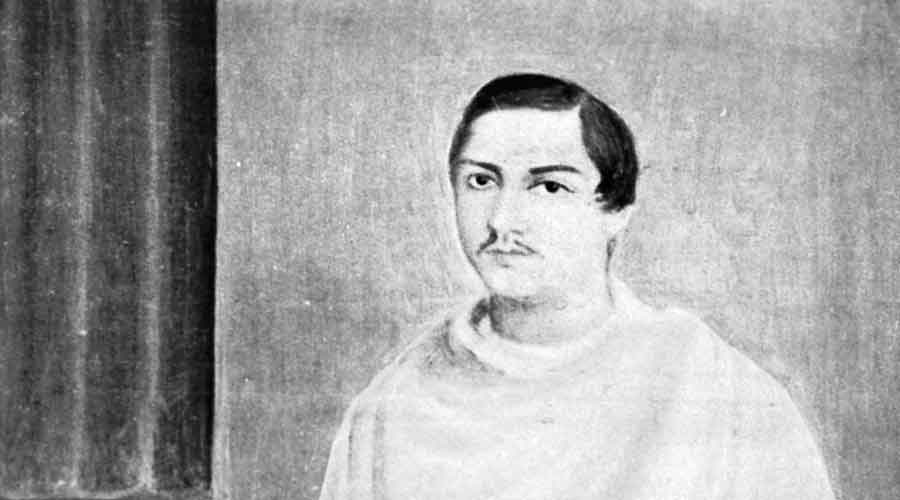Kaliprasanna Singha was a brilliant, versatile man, who blazed like a comet through the middle decades of 19th century Bengal with his brief but extraordinary life.
Singha is remembered most today as Hutom Pyancha, the author of Hutom Pyanchar Noksha, and the translator of the Mahabharata.
Assuming the pseudonym Hutom Pyancha (the watchful owl), he had written Hutom Pyanchar Noksha (Sketches by Hutom Pyancha) in 1862 as a sharp, satirical comment on the urban Bengali society of babus. It remains one of the most trenchant and insightful readings of Calcutta till date.
Born to a renowned zamindar family of Jorasanko in north Calcutta, Singha showed immense promise from childhood. He founded the Vidyotsahini Sabha (society for cultivation of knowledge) at 14.
The Sabha members, some of them much older than Singha, would present papers and discuss societal reform and progressive ideas. The focus was a lot on theatre. Vidyasagar was extremely impressed to see such a young person's vision and intellectual capability.
Singha edited and provided financial support to several newspapers and journals, including the Hindu Patriot.
With him as editor, the Mahabharata was translated into Bengali in prose, a translation that is still widely read. Vidyasagar supervised the project.
Singha would distribute copies of the Mahabharata free, for which he incurred huge financial losses.
Singha supported widow remarriage and after the Widow Remarriage Act — enacted in 1856 after Vidyasagar’s relentless efforts and arguments in favour of widow remarriage — announced an award of Rs 1,000 to any man who married a widow.
When Reverend James Long was fined Rs 1,000 for his role in the translation and publication of Nil Darpan by Dinabandhu Mitra, Singha paid the entire amount.
When Singha died, about 30 or 31, as there is some doubt about his date of birth, he was in considerable debt because of the many projects he had undertaken, but his contribution to the city was immense. Sunil Gangopadhyay’s Shei Somoy is a fictionalised account of his life, in which he appears as Nabinkumar.










